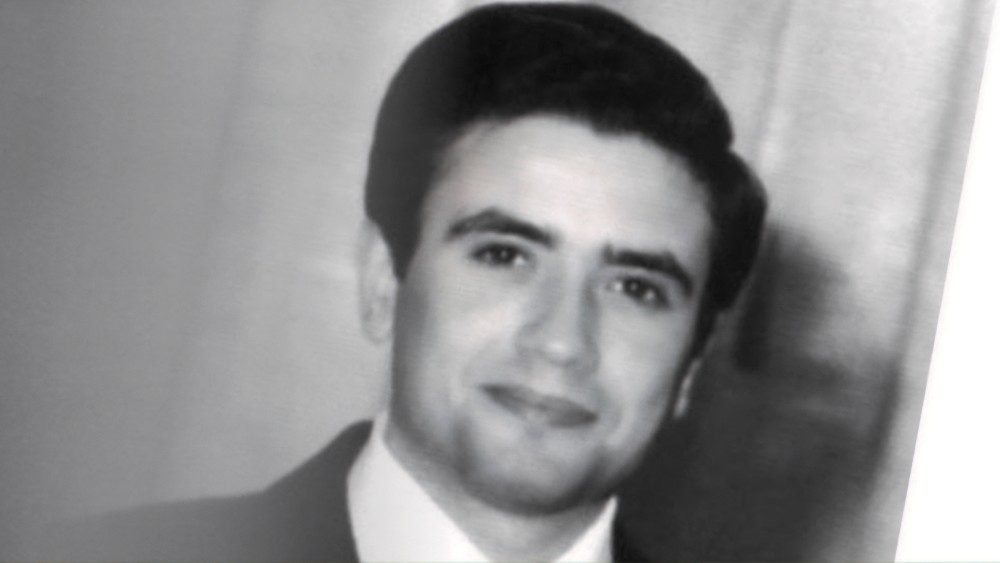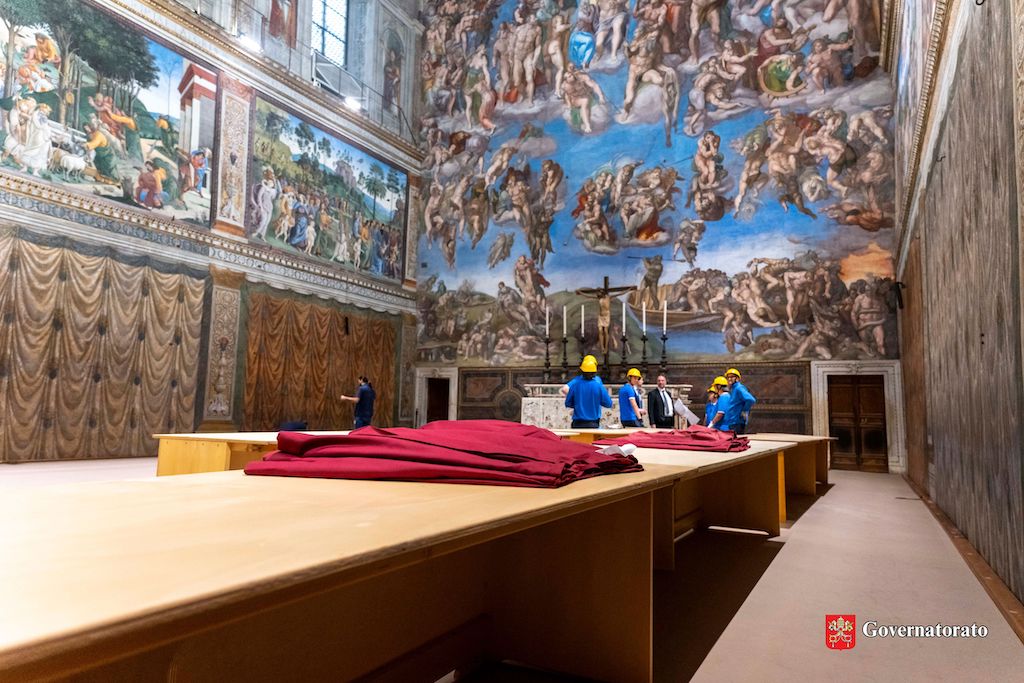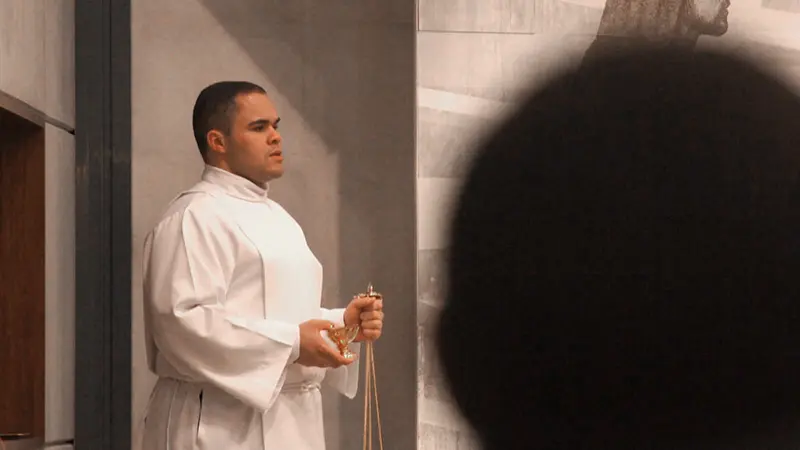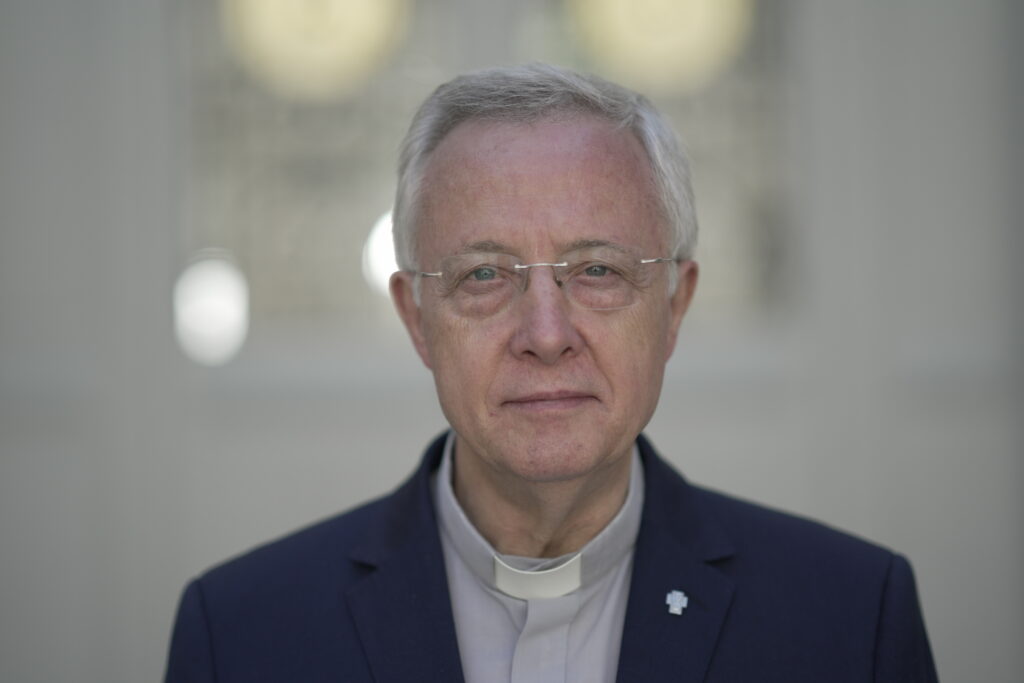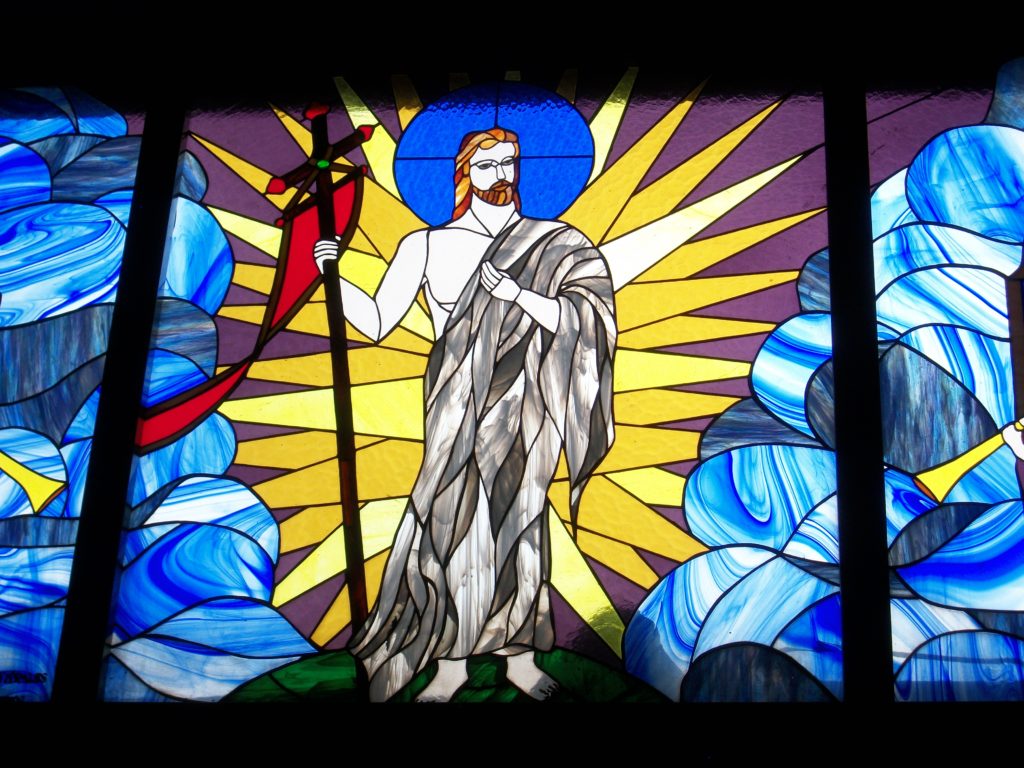Rosario Livatino, proclaimed blessed yesterday in Agrigento, Sicily, was a 37-year-old Italian magistrate killed in a shooting ambush on State Road 640 Agrigento-Caltanissetta, Friday Sept. 21, 1990, by Agrigento’s notorious so-called ‘Stidda’ mafia. He was targeted for his human, Christian and professional commitment against all forms of injustice and, against the mafia.
Recalling the beatification of Livatino at Sunday’s Regina Coeli in St. Peter’s Square, Pope Francis praised the late magistrate’s commitment as a “martyr of justice and faith.”
“In his service to the community as an upright judge, who never allowed himself to be bribed,” Francis said, “he strove to judge; not to condemn, but to redeem. His work always placed him “under the tutelage of God;” for this, he became a witness of the Gospel until his heroic death.”
“May his example be for everyone, especially magistrates, an incentive to be loyal defenders of legality and freedom,” Francis underscored, asking for “an applause for the new blessed!”
Sicilian journalist, expert and author, Marco Pappalardo, just dedicated an intricate book to Livatino’s story, entitled “Don’t Call Him a Kid. Rosario Livatino, a Judge Against the Mafia,” with the aim of telling children and adolescents, above all, who is the new martyr of the Catholic Church.
Rosario Livatino was “a giant of truth,” Cardinal Gualtiero Bassetti, President of the Italian Bishops’ Conference, said a few days ago: “a man who embodied the Gospel of the Beatitudes because he was hungry and thirsty for justice. You can’t live with the mafia! Between the mafia and the Gospel there can be no co-existence.”
And even Pope Francis, signing the introduction to another book dedicated to the magistrate martyr of the mafia, emphasized the mafia are “the ‘Herods’ of our time” and that every form of the mafia is an “intrinsic denial of the Gospel, in spite of the secular ostentation of holy cards, of sacred statues forced to disrespectful bows, of religiosity heralded as much as denied.”
In the pages of Marco Pappalardo’s book, his city, some personal objects, places of study and work, and symbols of faith and justice, all speak of Livatino. Through the text, the author sketches a compelling portrait of a Christian of very deep faith and a magistrate with a very high sense of duty.
Here is Exaudi’s conversation with Pappalardo:
***
EXAUDI: Why is Rosario Livatino nicknamed — as many know — the “boy judge,” although he was 38 when he died?
MARCO PAPPALARDO: The definition stems from Cossiga, then President of the Italian Republic, who sadly used this expression, which was out of place. Then, Nando Dalla Chiesa’s excellent book, using it provocatively as the title of his book, showed how much Livatino, who was certainly young, but not a “boy,” more than lived up to his role. Moreover, do we want to think that the “’Stidda” [Mafia-type organization in central-southern Sicily], which killed him, was afraid of a “boy”? On the contrary, we see that their fears were endless!
EXAUDI: Your book, in fact, is entitled “Don’t Call Him a Boy.” Why did you choose this title?
MARCO PAPPALARDO: The title is provocative and stems from what I said above. In these pages, Livatino’s city, some personal objects, place of study and work, symbols of the faith and of justice and testimonies speak of him and for him. Quoting the words of the brave magistrate in italics, they tell of a simple but intense life, a profession lived consistently, a man of most profound faith and lofty sense of duty. Then, at the end of every chapter, there are brief reflections to help the reader understand that today Livatino is a winning model for us to be men and women of hope, in everyday little things and in the commitment against every mafia.
EXAUDI: When Rosario Livatino was killed in an ambush, while driving his car in a deserted area along the road between Canicatti and Agrigento, the killers were seen by only one eyewitness, who has lived under protection ever since, and changed his name. But is the price that high to break the conspiracy of silence around mafia crimes?
MARCO PAPPALARDO: Yes, the price is very high and 30 years ago it was certainly even more so, because the protection measures were not those of today. However, to denounce and to break the wall of silence are the only ways to demonstrate to the Mafia that it is fallible, that the courage of one overcomes the fear of many, that the common good breaks the wretched mechanisms of individualism. Piero Nava, the eyewitness of the murder, has said: “This is the awful way in which we live, but why? Because there is no education, because one is unable to take on responsibilities or is afraid to take on responsibilities because one doesn’t feel protected. I also did not feel protected, but I had the strength in me. How many times they have tried to impose something on me, but I’ve said: “No, I’m on the good side, I decide if I want to do it or not, you don’t decide for me, I’m on the right side, I’m part of those that are good, one who draws the line.” However, not all have this strength, perhaps other witnesses would not have had it, perhaps they didn’t have a family as I have, or the education I have, or the history I have.”
EXAUDI: The mafia has killed many magistrates to rid themselves of ‘inconvenient,’ if you will, individuals. However, have all magistrates up to today truly opposed the mafia?
MARCO PAPPALARDO: Livatino’s beatification is uncomfortable for those judges who, in face of the mafia and their shady deals, shut their eyes, go around to the other side, don’t go all the way into investigations, who lighten sentences, and dishonor the robe. For all the others, who mainly are honest, Livatino must be a model and a stimulus to do more and better!
EXAUDI: The Church proclaims martyrs and, hence, blessed, only men and women killed “in odium fidei.” We are used to thinking of martyrs of totalitarian regimes, of Christian persecutions, of history’s great tragedies… We aren’t used to thinking of martyrs of the mafia…
MARCO PAPPALARDO: The demonstration is precisely the declaration of martyrdom in odium fidei,” as in the case of Blessed Father Pino Puglisi. In my opinion, from the religious and Catholic point of view, the “anti-mafia believer” (il ‘credente antimafia’) doesn’t exist, or the anti-mafia priest, because all women and men of the Church are or must be against one who robs or kills people’s dignity, the future of society and the beauty of Creation. Therefore, the Gospel is against the mafia and the mafia members put themselves outside communion with the Church until they repent and convert with deeds, not just words.
EXAUDI: In your opinion, why is it important to make Rosario Livatino known to today’s young people? Your book, in fact, is addressed to them…
MARCO PAPPALARDO: Children, kids and young people are the present and future of our society and it’s necessary to put before them, with appropriate language, strong subjects and stories. They don’t live on another planet; hence, the awareness of problems and the possibility to address them must be posed to them gradually. As adults, we discover that there is more awareness and responsibility than we thought, but it’s important to give “hard bread” and correct accompaniment in every educational context. So, my book is adapted for personal reading, in the family, the school, the parish, the oratory.
EXAUDI: You are a teacher; you work in close contact with very young children. What is a responsibility of a school in teaching young people to reject the mafia’s culture?
MARCO PAPPALARDO: The problem is not only the mafia and the fight against it, but also the fight against the mafia mentality spread everywhere. There are contexts, often the peripheral, that suffer particularly and in an evident way from this scourge; however, if organized crime is so strong, it is so because of the connivance of the many unsuspected. There is no lack in schools today of constant reference to the fight against the mafias and the commitment for justice. Teachers have the mission to sow the seeds, often aware that others will gather the fruits. In every youth today there can be a “Judge Livatino” tomorrow!
EXAUDI: And, instead, what is the responsibility of the Church? The mafia and mafia members often express religious sentiments…
MARCO PAPPALARDO: Rosario Livatino’s beatification is uncomfortable, as I said before, because the message that stems from it is strong, new and clear: a judge, “credible believer,” raised to the honors of the altar. It’s uncomfortable for some men of the Church, who have substituted Jesus’ Gospel for that of money, power, cowardice, of “best not to expose oneself,” “as priests like Puglisi and Also Diana who had it coming to them.” It’s uncomfortable for lukewarm Christians, shut in sacristies, forts of devotions and ceremonies, immersed in their roles, far from the “existential peripheries,” with a Christ of their own making and a religiosity built ad hoc. Just as it is uncomfortable for the mafia bosses and the affiliated, old and new, whose weaknesses, fears, defeats, marginalization, false religiosity and empty devotions is thrown in their face.
EXAUDI: Thank you very much…
 (EN)
(EN)
 (ES)
(ES)
 (IT)
(IT)

